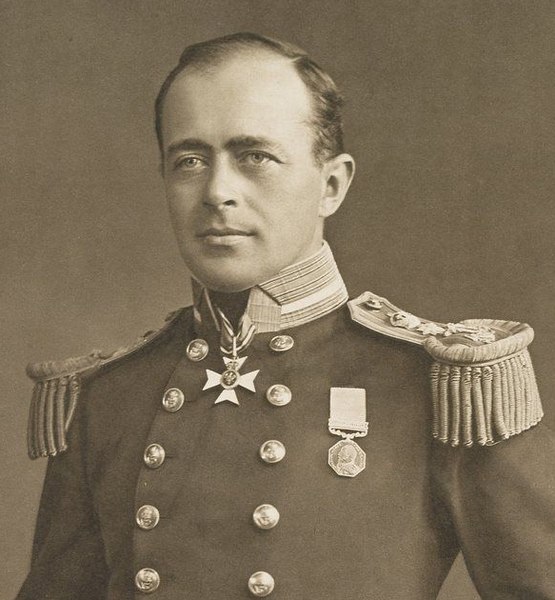This past Friday marked the 101st anniversary of the death of Robert Falcon Scott, who was stranded in a tent in the Antarctic after his ill-fated attempt to lead the first expedition to reach the South Pole. As we all know, Scott was successful in reaching 90ºS but arrived only to discover that he was beaten to the prize by Norwegian Roald Amundsen, who had nipped him at the finish line three weeks earlier. On the return trip back to the coast, Scott and his men suffered mightily before he and his two remaining companions became stranded in their tent while a I blizzard rage outside for ten days straight. They ended up freezing to death, without food nor fuel, just 11 miles from a supply depot that would have saved their lives.
We know that Scott was the last of his men to die and before he perished he wrote a few letters to friends and family back home. One of those letters was to Sir Francis Bridgeman, one of his former commanding officers. Last week, the contents of that letter were revealed to the public for the first time. It read:
To Sir Francis Bridgeman
My Dear Sir Francis
I fear we have shipped up – a close shave. I am writing a few letters which I hope will be delivered some day. I want to thank you for the friendship you gave me of late years, and to tell you how extraordinarily pleasant I found it to serve under you. I want to tell you that I was not too old for this job. It was the younger men that went under first. Finally I want you to secure a competence for my widow and boy. I leave them very ill provided for, but feel that the country ought not to neglect them. After all we are setting a good example to our countrymen, if not by getting into a tight place, by facing it like men when we were there. We could have come through had we neglected the sick.
Good-bye and good-bye to dear Lady Bridgeman
Yours ever
R. Scott
One of the things that had continued to endear Scott to his countrymen is that he continued to maintain his famous British stiff upper lip, even to the bitter end. That is seen once again in this letter as he asks for forgiveness for his poor penmanship due to the harsh weather. You would think when you know that you are facing your own impending doom you wouldn’t worry so much about that, but Scott still cared about the details even as he knew death was coming for him.
Would we all have the strength and courage to face our mortality if placed in the same circumstances? I’d like to think so, but I’m not sure that would be the case. These glimpses into Scott’s personality help to keep his legend and spirit alive more than a century after his death.
- Gear Review: The Xero Scrambler Mid is an Ultralight Hiking Shoe for Spring - March 1, 2023
- Gear Review: Yeti Roadie 48 Wheeled Cooler - August 18, 2022
- Kristin Harila Continues Pursuit of 8000-Meter Speed Record - August 16, 2022
